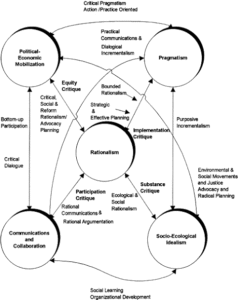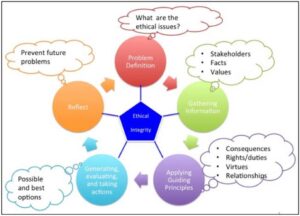Back to: Environmental Biology 200 Level
Welcome to class!
Hello amazing learner! Imagine you are trying to find out how clean the water is in your community or how many trees are left in a forest area. You cannot just guess; you need to collect information carefully and honestly. This is where Environmental Survey Planning & Data Ethics comes in. Today, we’ll learn how environmental studies are planned, and why it’s important to use data in an ethical and responsible way.
Environmental Survey Planning & Data Ethics
What is an Environmental Survey?
An environmental survey is the careful collection of information about the environment to understand its condition. It could be about air quality, water quality, soil health, wildlife population, or even human activities that affect nature.

Why Environmental Surveys are Important
They help in understanding environmental problems like pollution or deforestation.
Surveys provide data that governments or organisations use to make decisions.
They help track changes in the environment over time.
They guide policies and laws to protect nature.
Steps in Environmental Survey Planning
Identify the Purpose: What do you want to know? For example, “How clean is the water in Lagos Lagoon?”
Choose the Study Area: Decide where the survey will happen (a river, forest, or community).
Select Methods: Will you use questionnaires, field measurements, water sampling, or observations?
Collect Data: Gather information carefully using the chosen methods.
Analyse the Data: Organise and study the data to get clear results.
Report Findings: Present the results to communities, organisations, or government agencies.
What is Data Ethics?
Data ethics means using data in a way that is fair, honest, and respectful to people and the environment. It ensures that the information collected is accurate, not manipulated, and is used for the right reasons.
Key Principles of Data Ethics
Honesty: Never fake or change data.
Respect: Protect the privacy of people or communities involved.
Transparency: Clearly explain how and why the data was collected.
Responsibility: Use data to benefit society and the environment, not for harm.
Challenges in Data Collection
Inaccurate information due to poor methods.

Lack of community trust if people feel their information will be misused.
Biased results if data collectors only focus on certain areas or groups.
Summary
- Environmental surveys help gather important information about nature.
- Survey planning involves setting a goal, choosing an area, and collecting and analysing data.
- Data ethics ensures that information is collected honestly and responsibly.
- Respect, honesty, and responsibility are the foundation of ethical data use.
Evaluation
- What is an environmental survey?
- List three steps in planning an environmental survey.
- What does data ethics mean?
- Mention two challenges in collecting environmental data.
Fantastic work today! By learning to plan surveys and respect data, you are building skills to solve real-world environmental challenges. Keep going with Afrilearn — your journey to becoming an environmental problem-solver is just beginning.
